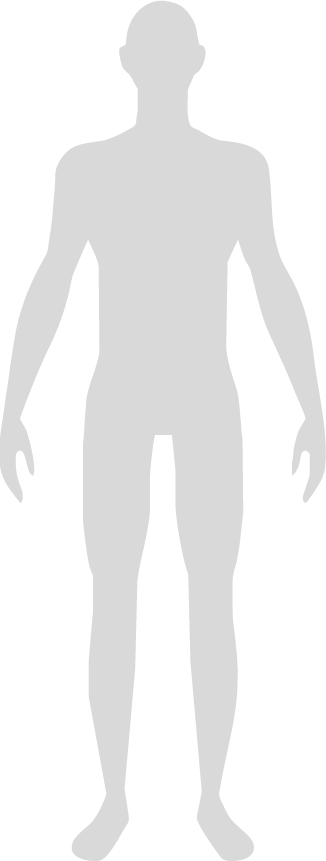INJURIES AND CONDITIONS THAT WE TREAT

HEAD & NECK PAIN TREATMENTS
- Dizziness can have many causes including neck injury, vestibular dysfunction (inner ear balance system), vascular, or neurological causes. Our therapists are highly trained in assessment to differentiate the cause of your dizziness and create a treatment plan or referral to a medical specialist if necessary. Learn More
- A concussion is a mild form of traumatic brain injury (TBI) caused by a force to the face, neck, or head. Some concussions resolve on their own, and others can have symptoms that linger for months - this seems especially true when you have a history of multiple concussions. Concussion symptoms include physical (for example headache), cognitive (for example, feeling “foggy”), emotional (for example, mood changes), and changes in sleep. Concussion may require a team approach to treatment including medical doctor, physiotherapist, psychologist, neurologist, and/or more. Our therapists are trained in assessing concussion and providing a step by step treatment plan to get you back to yourself. Learn More
- Stenosis is a narrowing of the spinal canal that may lead to compression of the nerve roots or spinal cord. Stenosis may occur as a result of degeneration (spondylosis), trauma (fracture, instability), or inflammation. This narrowing may lead to nerve symptoms in your arms such as numbness, tingling, and weakness. Our therapists are trained in detecting the pattern of stenosis and providing you a treatment plan to help you manage your symptoms. Learn More
- Although much more common in the low back, disc herniation in the neck is possible and can be resolved with conservative treatment (non-surgical approach). Causes include degeneration with age, trauma, repetitive activity, or even a lifestyle of being sedentary and having poor posture. Symptoms may include neck pain and arm symptoms including numbness, tingling, and weakness. Our therapists are trained in assessing this condition and creating a treatment plan to restore your function. Learn More
- Degeneration (also known as spondylosis) is a natural process of aging that occurs in all people (some more than others). Degeneration can occur at the disc (degenerative disc disease), ligaments, or joints (facet arthropathy) and may lead to other conditions such as stenosis (narrowing of the spinal canal). Symptoms of degeneration may include neck pain and stiffness and possibly arm symptoms if stenosis is present. Since degeneration is a natural process, it may also be asymptomatic (often people show degeneration on x-ray or other imaging but have no pain). Our therapists are trained in assessing degenerative disease and creating a plan to get you feeling better.Learn More
- Posture is more than just “sitting up tall”! The way you hold your body (whether you are sitting still or moving/working) can prevent pain and injuries. Your therapist can assess your posture including the curvature of your neck, head alignment, shoulder symmetry, pelvic tilt, and hip/knee/ankle position to help you return to a state of postural health. Learn More
- Jaw pain has many causes including muscular tightness, poor posture, degeneration, inflammation, or trauma. Symptoms can include jaw pain, neck pain, headaches, dizziness, or clicking in the jaw. Our therapists can assess your jaw and create a treatment plan to get you back to health. Learn More
- Whiplash occurs as a result of sudden acceleration-deceleration movement. It is well known to occur after a car accident, but can also occur during any other activity that involves a quick acceleration-deceleration for example, being tackled during a football game and your head/neck traveling forward and back. The most common symptoms include pain, stiffness, muscle spasm, and headache. Early intervention appears important in whiplash including stretching and strengthening exercises to prevent chronic pain and disability. Our therapists are trained to thoroughly examine your neck and create a treatment plan to improve your symptoms. Learn More
- Headaches are a common occurrence, affecting as many as 46% at any one time. Although headaches have many causes, the neck and jaw may be one of them. Some of the structures in the neck including joints, muscles, and disc have referral patterns into the head/face that present as a headache. Your therapist will complete a thorough assessment to determine if your headache has a neck component and create a treatment plan to address your concerns. Learn More
- Learn More
- Learn More
- Arthritis is a broad term that describes any condition that can cause painful joints. There are many types of arthritis that can affect the neck such as osteoarthritis, ankylosing spondylitis, spondylosis, rheumatoid arthritis, and others. Symptoms often include pain, stiffness, and possibly swelling and inflammation. Your therapist will be able to assess your neck to determine if degeneration is present and create a treatment plan for you to ease your symptoms. Learn More
- Neck pain is a common occurrence, affecting as many as 48.5% of people in their lifetime. Common types of neck pain include muscle pain & spasm, headaches, joint pain or stiffness, instability, nerve pain, referred pain, arthritis, whiplash, postural dysfunction, concussion, and more. Using a thorough assessment, our knowledgeable therapists will be able to provide a diagnosis and step-by-step treatment plan to get you back to yourself. Learn More


